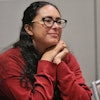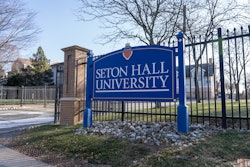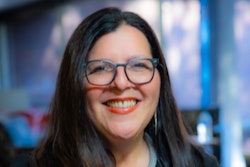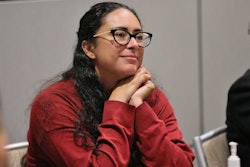Freedom is never really won. You earn it and win it in every generation. – Coretta Scott King
I am an African-American pediatrician, public health professional, and a university professor of medical and nursing students and of pre-health professions undergraduate students.
In my heart, however, I am a time traveler.
I am connected to centuries of civil rights milestones that changed reality for African-American children like me. Now, as a medical educator, I use “my day job” to reach deep beneath the surface of society to the same streams that have systematically deflected and diminished the value of Americans of African descent since this nation’s founding.
Despite how calm the surface of U.S. society may look from time to deceptive time, there is a constant and undeniable undertow of racial inequality and ascribed differential value. This undertow continues to pull us, phantom-like, downstream – even against our best, conscious efforts to do better – toward another generation of racially unequal health and health care quality, and social inequality, more broadly.
And yet, we health professions educators are curiously ahistorical in how we teach students, trainees and future researchers effective strategies to achieve the elimination of racial disparities in health. When I hear terms like social determinants of health, community engagement, community-based participatory research, implicit bias, and health equity, I wonder why we neglect using the American past to teach today’s students.
Could it be that our curricula reflect an unspoken belief: all we need is more students mechanistically skilled in well-executed, one-on-one, cross-cultural clinical encounters, multivariate analyses, legislative advocacy, or assets-based community development?
It is almost as if we view health disparities as a technical problem with a technical solution.
What we need are more time travelers.
What history teaches about health disparities
Watching the summer 2017’s torch-lit, nighttime march of White supremacists on the University of Virginia campus – this generation brazenly without masks – was time travel of the most unsettling kind. That we are still in a contentious battle in 2018, over the rightness and relevance of Confederate flags, monuments, holidays and heroes, should tell us how unresolved is our collective narrative about our history and national identity regarding race.
I had the privilege to time travel that same summer with my 16-year-old son to research my maternal grandfather, the late Rev. Rip Isaiah Lemon, Sr. We first travelled to the University of South Carolina in Columbia and scoured the archives of one of South Carolina’s Black newspapers, the Palmetto Leader. Before she died, my mom told me I would find his writings there. We completed our trek in Charleston, South Carolina at my mother’s high school. Known as the Avery Normal Institute when she graduated in 1947, it is now the Avery Institute for Afro-American History and Culture, affiliated with the College of Charleston.
For me, the history of America’s South, the history of America, was eerily palpable on just about every corner of the Charleston I saw. Dark red-brown brick buildings with startling white arches. Churches with angular steeples still piercing the sky as they did centuries ago. A slave auction on a cobblestone street, turned into a museum documenting the brutality and savage treatment we are often reluctant to recall. Nearly everywhere, I could hear the silent cries of those of African descent who set in motion the dreams that I now live.
Grandpa Lemon, an African Methodist Episcopal (A.M.E.) minister, a World War I veteran and the descendent of Africans brought to America as slaves was born in rural Davis Station, South Carolina in 1892. This was three years before the National Medical Association was founded to counter the exclusion of Black physicians from the American Medical Association.
Black physicians and ministers had this in common: both went beyond their “professional” tasks to be default community leaders, wading into various public policy arenas, dedicated to the holistic well-being of African Americans and others. Case in point: Grandpa Lemon was pastor at both Morris Brown A.M.E. Church and Emanuel A.M.E. Church in Charleston, and he was president of Charleston’s branch of the National Association for the Advancement of Colored People (NAACP). As a pastor in the 1930s, Grandpa Lemon endured public beatings after Sunday church services and was hauled away in a paddy wagon by White police officers. This sent a message to the entire Black community, those watching in horror at Grandpa Lemon’s humiliation, and those who would hear later: “White people are still in charge. White people still have power over your lives.”
Such American history came hurtling forward into our century when, in 2015, an avowed White supremacist aimed to “start a race war” by murdering nine parishioners in Charleston’s Emanuel A.M.E. Church. This was the same church where my grandfather welcomed his parishioners, founded in 1872 as the social and spiritual center of Charleston’s Black community. This was the same political organizing site where hundreds at a time were welcomed from across the state for “mass meetings” to strategize how to forge a healthier, more prosperous future for their children. This was the church where folks paid their last respects to Grandpa Lemon at his funeral. And this was the church I could see from my hotel room across the street on Calhoun Street in summer 2017.
Standing there, gently pulling the hotel curtains back so as not to wake my son with Carolina’s morning light, I saw then why I connected so strongly across the miles, decades and generations with Grandpa Lemon, this man I had never met. I feel his legacy and his presence, still pushing our nation forward whenever I deliver a lecture to a medical, nursing or public health class, speak with parents or K-12 educators or testify at a city council, school board or community meeting.
Even as an academic pediatrician and public health professional, I am much like Grandpa Lemon was. Like him, I am a local newspaper columnist, a university professor, holder of a doctorate degree, and a community activist to my core. Many look to me as a leader concerning issues of community-police relations, parenting and race and educational equity in Davis, California, where I live. Like my grandfather, I use my “helping” profession to publicly affirm the value of each individual, to define health beyond the spiritual in his case, and beyond the physical and mental in my case.
Though an academic physician, I am him, the Rev. Rip Isaiah Lemon, Sr., for this generation, my generation.
The police shootings of unarmed Black men and teenagers over the last several years had my son “creeped out” at the racial past enshrined in the architecture of antebellum Charleston, still visible in today’s hipster, gentrified destination city. My son has both the blood of Mexico and the blood of Africa coursing through his body. But he looks Black. To the sound of my breaking heart, he knows that black skin is all one needs in this society for folks to assume criminality and a threat to public safety. He gets that. Deep in his soul, he gets that.
Seeing U.S. history in today’s health inequities
As my son sees America’s past operant in his present, I see my grandfather’s past operant in today’s health disparities. I believe historical scripts of inequality – those same deep-water streams of long ago – in part drive lesser quality care for Blacks and others. As but one example, Blacks are more likely than Whites to receive inadequate pain treatment for cancer, chronic, postoperative and emergency room pain. In National Hospital Medical Care Survey data from 2003 to 2010, controlling for a number of factors including insurance status and pain score, researchers found that Black children with confirmed appendicitis were significantly less likely than White children to receive any pain medication, and less likely than Whites to receive opioid medication for pain rated as severe (8-10 on a 10 point scale).
A 2016 study suggests that some medical students and residents believe that Black people are biologically different than White people, including that Blacks have less sensitive nerve endings and thicker skin. In this study, those who held these false beliefs were more likely to rate Blacks’ pain lower than Whites and to recommend inadequate pain treatments for Blacks.
In the spirit of time travel, this is a truly unsettling consistency with those physicians, scientists and others who centuries ago assuaged the nation’s conscience, callously justifying American slavery. Many performed painful medical and surgical experimentation on Blacks without anesthesia, including the so-called “Father of Gynecology,” J. Marion Simms.
This historical script was first performed at the founding of what is now the wealthiest nation on earth, in part on the backs and in the wombs of enslaved Africans and their descendants, who were depicted as not so much bothered by it all. Thomas Jefferson wrote of Blacks: “Their griefs are transient. Those numberless afflictions…are less felt, and sooner forgotten with them.”
We are our history.
Reaching beyond the clinical to achieve health equity
I am not advocating that clinicians and health professions students become historians.
We should be asking ourselves if we are teaching both undergraduate and graduate health professions students to identify, expose and offer concrete plans to practically interrupt and transform entrenched scripts of inequality, scripts that unrecognized and uncommented on can undermine health equity. For me, this looks like training students and colleagues to identify, redefine and redirect these present-day, deep-water streams using myriad history and sociology lessons in the health professions classroom; connecting the dots from past and ongoing social constructions of race, directly to unequal health status and health care quality; and equipping the next generation of healthcare providers to step out beyond the physical and intellectual boundaries of the university, the lab, the clinic and the classroom, and into local public spheres and decision-making spaces.
I am grateful for my time travel that summer, how I saw myself in my grandfather and my grandfather in me, respectively embracing public roles beyond the pulpit and clinical practice. The restricted leadership we teach, model and fund – mechanistic, technical and professionally insular – is not enough. It has proven inadequate in addressing America’s centuries-old script of Blacks’ lesser value that continues to undermine the realization of health equity in these United States.
Dr. Jann Murray-García, is an Assistant Health Sciences Professor in the Betty Irene Moore School of Nursing and Summer Institute on Race and Health in the School of Medicine at the University of California, Davis.















